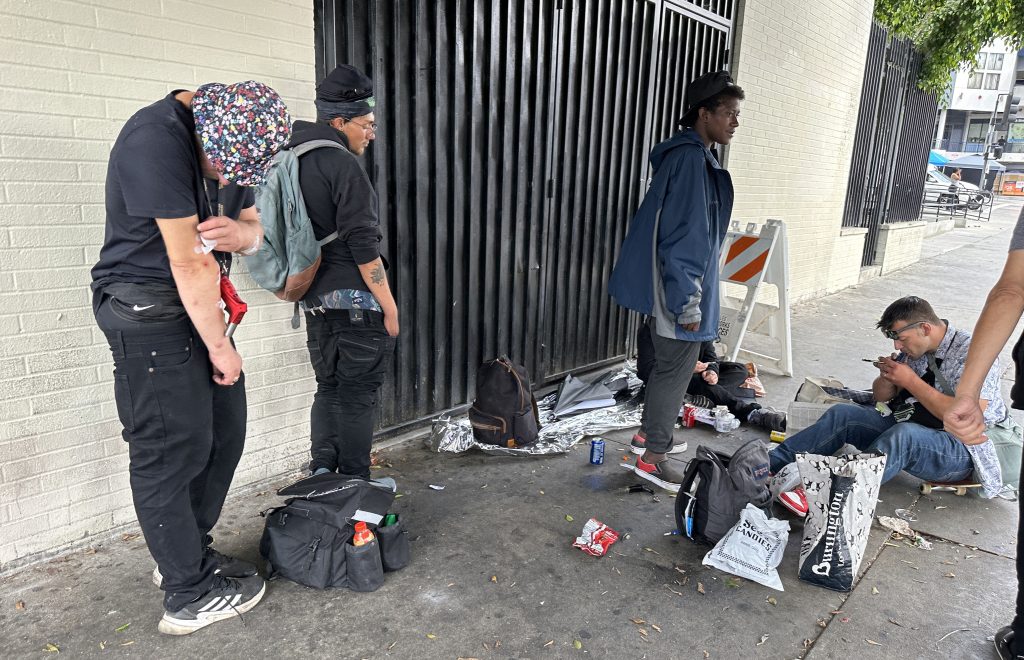
MacArthur Park, situated halfway between Koreatown and downtown Los Angeles, has become a hotbed for drug addicts. The situation is worsening, yet politicians seem to be paying only lip service.
The Westlake neighborhood, with a high concentration of low-income Latinos, feels virtually abandoned. Burglaries and robberies are on the rise, largely driven by fentanyl and opioid addiction, as the Southern California News Group (SCNG) recently reported.
Thirty years ago, the area, part of City Council District 1 (Eunisses Hernandez), was bustling with activity. Locals played soccer, took walks, and held cultural performances. For Koreans, the park was adorned with symbols commemorating the Battle of Incheon.
However, due to the pandemic and inflation, many homeless individuals, now out of the workforce, are resorting to drugs in alleyways. The presence of addicts lounging in parks has given the area the appearance of a “dead street.”
Addicts are frequently seen stealing from small shops in the neighborhood to fund their habits or begging in alleyways. Patrol cars have become a regular sight at the Metro station adjacent to the park.
Hernandez, who joined the council last year, described the dire situation in an interview with SCNG, stating, “The problem is so severe that people are dying weekly from drug abuse in this neighborhood, and the city feels powerless.”
Mayor Karen Bass declared a state of emergency to address the homeless crisis and has made efforts to move people off the streets through her “Inside Safe” program. This initiative involves deploying non-police support teams and improving the environment to protect businesses. There are plans to double the support relative to other areas. However, the reality remains largely unchanged.
In the overlapping state House districts, Representatives Miguel Santiago (54th District) and Reggie Jones-Sawyer (59th District) claim they’re exhausting resources to secure relief, but it seems insufficient.
“There have been commendable outreach efforts in the park to offer housing and substance abuse treatment services, but evidently, more action is required,” Santiago expressed in a statement to SCNG. This reflects a recognition of the challenges among state lawmakers.
Jones-Sawyer urges legislators in Sacramento to perceive the fentanyl epidemic as a public health crisis rather than a criminal justice issue. This perspective is shared by Hernandez, who advocates for service-oriented approaches in MacArthur Park. Yet, as noted by SCGN, the state legislature has been slow to prioritize the matter.
Residents who should be vocal seem resigned. In the recent election for the MacArthur Park Neighborhood Council, only one individual ran for office. The lack of representation is glaring, with no meetings or community input. Experts predict that the deteriorating conditions may lead to severe issues like major crimes and fires, potentially impacting neighboring areas like Koreatown and Hollywood.
BY BRIAN CHOI [ichoi@koreadaily.com]




